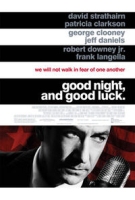Blog
Kuwaiti Women Vote
From an AP story on MSNBC.com:
Kuwaiti women voted and ran as candidates for the first time Tuesday in a municipal election in the conservative country's capital, but initial reports indicated not many women were casting ballots. The vote to fill a seat in the city's Municipal Council came almost a year after parliament passed a bill enfranchising women and enabling them to run for office. It was seen as a preview of how women might fare in the parliamentary elections due next year in this oil-rich state. Women candidates were disadvantaged, both by prejudice and tradition, such as the fact that no female faces adorned the huge electoral posters plastered outside polling stations. It would be considered indecent for a woman candidate to advertise her face.
How Would Jesus Dodge
From an AP story on msnbc.com:
A youth minister in Missouri has been charged with assault for for allegedly knocking down a 16-year-old boy and kicking him in the groin during a dodgeball game. Authorities say the teen had missed David Boudreaux with one throw, but then knocked his glasses off with another. The boy apologized, but authorities say Boudreaux pushed him backward and then kicked him in the groin when the teen got up again.
Good Night and Good Luck

Tonight we watched Good Night and Good Luck (2005,PG) (Screen It! Review) with the Bells. From wikipedia:
Good Night, and Good Luck. is an Academy Award-nominated 2005 film directed by George Clooney and written by Clooney and Grant Heslov, that portrays the conflict between veteran radio and television journalist Edward R. Murrow and U.S. Senator Joseph McCarthy of Wisconsin, especially relating to the anti-Communist Senator's actions with the Senate Permanent Subcommittee on Investigations. The movie, although released in black and white, was filmed on color film stock but on a grayscale set, and was later color corrected to black and white during post-production. It focuses on the theme of media responsibility, and also addresses what occurs when media is a voice of dissent against the government. The title is taken from the line with which Murrow routinely closed his broadcasts.
It was a good movie (I give it 4 out of 5), and Clooney was obviously commenting on the current tendency to vioate basic rights and freedoms in our fearful fight against terrorism by telling the story of violating basic rights and freedoms in the fearful fight against communism. Have a listen to episdoe 310 of This American Life. It features interviews of several former prisoners in Gitmo. I'm sure there a plenty of really bad guys in Gitmo, but there are apparently also many, many ordinary folks seized by mercenaries and sold to us who never faught with the Taliban et al. From the description of the episode:
The right of habeas corpus has been a part of this country's legal tradition longer than we've actually been a country. It means the government has to explain why it's holding a person in custody. But now, the war on terror has nixed many of the rules we used to think of as fundamental. At Guantanamo Bay, our government initially claimed that the prisoners should not be covered by habeas - or even by the Geneva Conventions - because they're the most fearsome terrorist enemies we have. But is that true? Is it a camp full of terrorists, or a camp full of our mistakes? Prologue. Joseph Margulies, a lawyer for one of the detainees at Guantanamo, explains how the detention facility there was created to be an ideal interrogation facility. Any possible comfort, like water or natural light, are entirely controlled by the interrogators. (3 minutes) Act One. There's No U.S. in Habeas. Jack Hitt explains how President's Bush's War on Terror changed the rules on prisoners of war, and how it is that under those rules, it'd be possible that someone whose classified file declares that they pose no threat to the United States, could still be locked up indefinitely - potentially forever! - at Guantanamo. Jack Hitt reports. (24 minutes). Clarification: When Seton Hall Professor Baher Azmy discusses the classified file of his client, Murat Kurnaz, in this Act, he is referring to information that had previously been made public and published in the Washington Post. That material has subsequently been reclassified. Act Two. September 11th, 1660. Habeas Corpus began in England, and 175 members of the British Parliament filed a "friend of the court" brief in one of the Supreme Court cases on habeas and Guantanamo, apparently the first time that's happened in Supreme Court history. In their brief, the MP's warn about the danger of suspending habeas: "During the British Civll War, the British created their own version of Guantanamo Bay and dispatched undesirable prisoners to garrisons off the mainland, beyond the reach of habeas corpus relief." In London, reporter Jon Ronson, author of Them, goes in search of what happened. (6 minutes) Act Three. We Interrogate the Detainees. Although over two hundred prisoners from the U.S. Facility at Guantanamo Bay have been released, few of them have ever been interviewed on radio or television in America. Jack Hitt conducts rare and surprising interviews with two former Guantanamo detainees about life in Guantanamo. (20 minutes) Song: "Know Your Rights," The Clash
Knoxville
Last night we got together with a bunch of our Knoxville friends...Greg, Carol, Cade, and Cian...David, Jenn, Alex, Abbey, and Ben...Jim, Kelly, Caroline, and Joe...Dave, Ellen, Anna, and Owen...Muriel (Gary couldn't make it)...Danny, Phyllis, and Will.





Pages
Theme by Danetsoft and Danang Probo Sayekti inspired by Maksimer